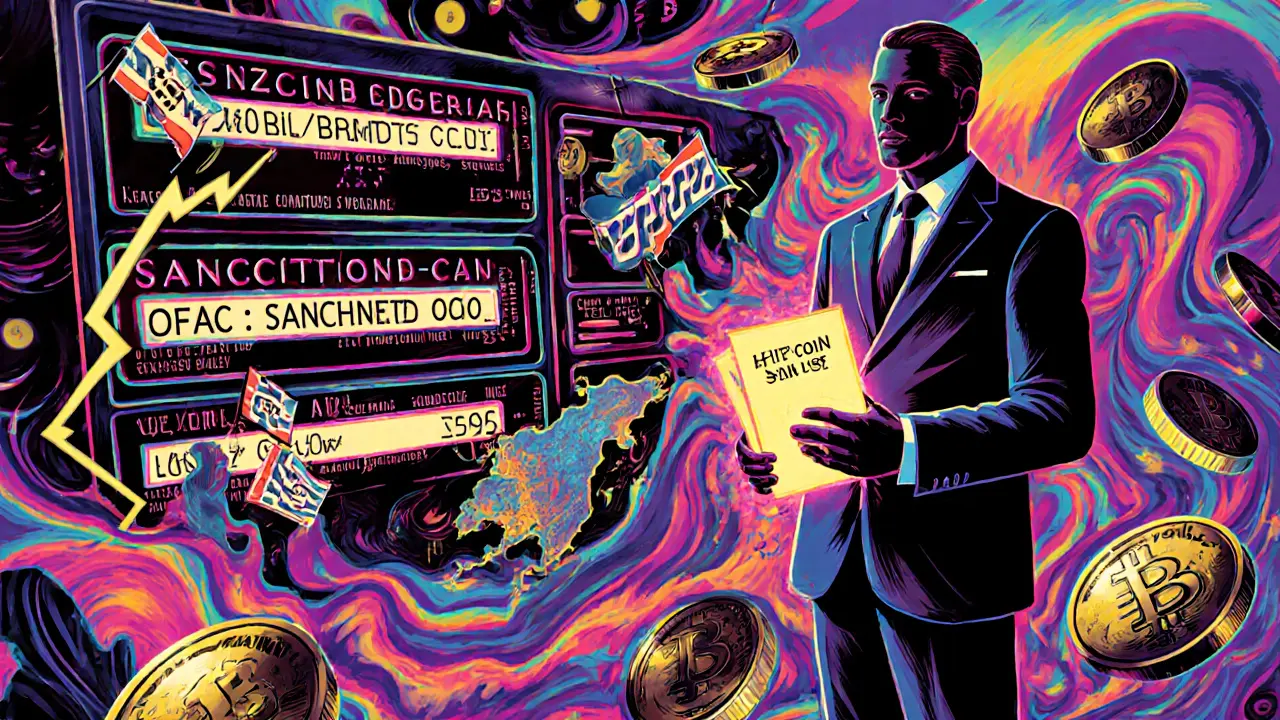OFAC SDN List: What It Is and How It Affects Crypto in 2025
When you hear OFAC SDN list, a U.S. government database of individuals, companies, and organizations blocked from doing business with Americans. Also known as Specially Designated Nationals list, it’s not just about old-school sanctions—it’s now a live filter on blockchain transactions. If a crypto wallet, exchange, or DeFi protocol interacts with an address on this list, U.S. companies are legally required to freeze funds and report the activity. This isn’t theoretical. In 2024, the U.S. Treasury froze over $100 million in crypto tied to North Korean hackers and Russian oligarchs listed on the SDN list.
The crypto sanctions, targeted restrictions on digital assets linked to illegal activity or state actors are tightening fast. Exchanges like Coinbase and Kraken now automatically screen incoming and outgoing transactions against the SDN list. Even decentralized protocols aren’t safe—some DeFi apps now integrate on-chain compliance tools to avoid U.S. legal exposure. The sanctioned crypto addresses, blockchain addresses flagged by OFAC as tied to criminal or hostile entities aren’t just random strings—they’re often linked to known ransomware gangs, darknet markets, or state-backed cyber units. The blockchain compliance, the practice of monitoring and restricting crypto activity to meet legal requirements isn’t optional anymore. It’s baked into the infrastructure.
What does this mean for you? If you’re trading, staking, or holding crypto in the U.S., you’re already affected—even if you don’t realize it. A simple transfer to a wallet that once held funds from a sanctioned address can trigger a freeze. Companies that ignore this risk face millions in fines. Countries like Qatar and India are watching U.S. sanctions closely and building their own versions. The OFAC SDN list isn’t just a U.S. tool anymore—it’s becoming the global standard for crypto accountability. Below, you’ll find real cases, compliance breakdowns, and crypto projects that got caught in the crosshairs. No fluff. Just what you need to know to stay clear of trouble in 2025.
OFAC Cryptocurrency Sanctions and Compliance: What Crypto Businesses Must Do in 2025
OFAC cryptocurrency sanctions apply to all crypto businesses involving U.S. persons. Learn what you must do in 2025 to avoid fines, how to screen wallets, which tools to use, and why compliance isn't optional.
